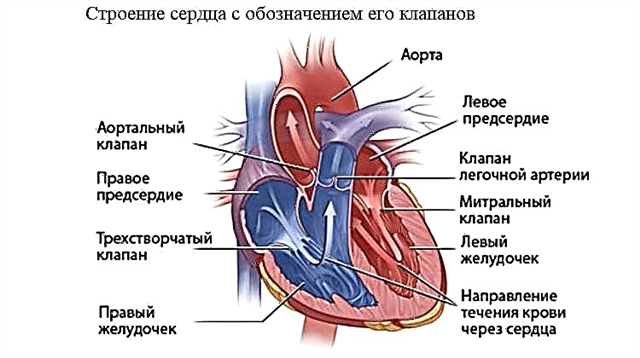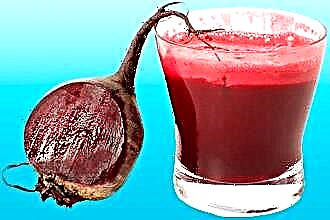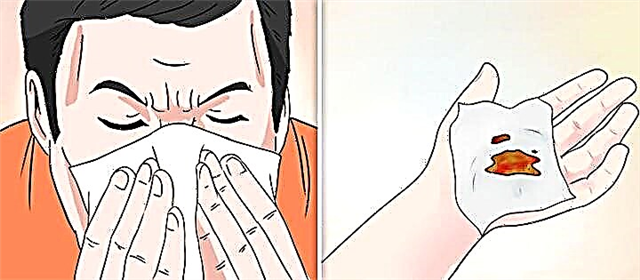Instructions for the use of "Bisoprolol"
 Β-adrenergic receptor blockers (β1-AR) is a large group of drugs that competitively and selectively inhibit the binding of catecholamines to the corresponding receptors.
Β-adrenergic receptor blockers (β1-AR) is a large group of drugs that competitively and selectively inhibit the binding of catecholamines to the corresponding receptors.
The latter are proteins of the outer cell membrane that “recognize” and connect molecules of adrenaline and norepinephrine circulating in the blood. β1-ARs are localized on the sheath of cardiomyocyte fibers, renal cells and adipose tissue. The effect on the structures causes an acceleration of the pulse and an increase in heart rate, stimulates glycogenolysis (breakdown of complex carbohydrates) in the liver, relaxation of the vascular wall of the arteries.
"Bisoprolol" is a new generation drug that dissolves in blood plasma and tissue fat cells. The excretion of active metabolic products is carried out in two ways: renal excretion and elimination with bile into the intestine.
This feature is one of the advantages of the drug, which allows prescribing "Bisoprolol" to patients with chronic renal or hepatic diseases, elderly people. The drug is considered safe for patients with type 2 diabetes mellitus, since it does not affect carbohydrate and lipid metabolism.
Pharmacokinetic properties:
- more than 90% of the active ingredient is absorbed from the intestinal cavity;
- connection with blood plasma proteins - 28-32%;
- adsorption and bioavailability are independent of food intake;
- the drug takes effect after 3-4 hours;
- the therapeutic maximum is reached after 10-12 hours, lasts more than a day.
Indications for use
"Bisoprolol" is used in the clinical practice of cardiologists, therapists and endocrinologists. The most common indications for taking the drug:
- hypertension (essential and symptomatic);
- acute and chronic forms of ischemic heart disease (angina pectoris, myocardial infarction (MI), cardiosclerosis);
- chronic heart failure (CHF) with left ventricular systolic dysfunction (reduced ejection fraction);
- symptomatic therapy of thyrotoxicosis - pathologies with increased synthesis of thyroid hormones;
- hypertrophic cardiomyopathy;
- permanent form of atrial fibrillation, supraventricular (supraventricular) tachycardia.
The goals of prescribing "Bisoprolol" in acute myocardial infarction on the first day:
- relief of pain syndrome;
- restriction of the zone of necrosis in the muscle;
- prevention of severe arrhythmias;
- reducing the risk of death.
BAB reduce mortality in chronic heart failure and prevent complications from the circulatory system during surgical interventions (stenting of the coronary arteries, bypass grafting).
Mechanism of action
The active substance binds to β-AR and prevents the interaction of catecholamines, the occurrence of cellular reactions. "Bisoprolol" is a cardioselective drug that selectively blocks β1-adrenergic receptors located in the heart and does not affect the structure of the lung tissue.
The pharmacological effects of the drug are presented in the table.
| Structure | Influence |
|---|---|
| Myocardium (muscular layer of the heart) |
|
| Conductive system |
|
| Coronary vessels |
|
| Kidney |
|
Consequences of using "Bisoprolol":
- reducing energy costs in tachycardia, sympathicotonia - conditions with increased stimulation of adrenergic receptors;
- correction of pathological remodeling (structural changes) of the myocardium;
- delay or slowdown of functional heart failure due to dysfunction of beta-adrenergic receptors;
- decreased sensitivity to adrenaline with a progressive decline in the contractile function of cardiomyocytes.
Composition and form of release
The drug is produced in the form of flat white tablets with a beveled edge. The concentration of the active substance (bisoprolol fumarate) is from 2.5 to 10 mg, depending on the selected dosage. There is a dividing line on the surface of the tablet, which indicates an equal amount of the drug in each half.
The carton contains 2-5 blisters with tablets of 10 pieces, instructions for the use of "Bisoprolol".
Method of administration and dosage in various cases
Basic rules for using the drug: 1 time a day in the morning, without chewing, regardless of food intake, with a glass of water.
The product is incompatible with alcoholic beverages. Simultaneous intake with alcohol reduces the therapeutic effect and increases the likelihood of adverse reactions.
Arterial hypertension, coronary artery disease with angina pectoris
Treatment begins with minimal doses and gradually increases to therapeutic (effective). The target daily amount of "Bisoprolol" is 5 mg (if necessary - 10 mg).
The daily dosage is selected individually in accordance with the indicators of blood pressure and heart rate.
CHF with LV systolic dysfunction
For treatment, a combination of "Bisoprolol" with ACE inhibitors, diuretics and angiotensin-2 blockers is used. Before starting therapy, it is necessary to exclude the possibility of pathology progression.
CHF therapy provides for a "stepwise" increase in the dose of the drug within 3 months. The transition to a higher concentration is allowed with a satisfactory tolerance of the previous one.
| Weeks | Daily dose (mg) |
|---|---|
| 1st | 1,25 |
| 2nd | 2,5 |
| 3rd | 3,75 |
| 4th-7th | 5 |
| 8-11th | 7,5 |
| 12th | 10 |
If undesirable consequences of taking or exacerbation of heart failure occur, therapy with "Bisoprolol" is temporarily stopped. Treatment is resumed after normalization of the patient's indicators with a minimum dose of 1.25 mg.
The selection of an effective dosage by titration requires constant monitoring by a physician: the patient is in a day hospital.
An abrupt discontinuation of the drug in CHF is accompanied by the risk of progression of circulatory disorders, and in IHD, an increase in chest pain attacks in patients.
With extreme caution, Bisoprolol is prescribed to patients with bronchospasm, uncontrolled diabetes mellitus, following a strict diet, obliterating vascular pathologies and Prinzmetall's angina pectoris.
Contraindications
The complex effect of the active substance on organs and tissues is the main reason for the restrictions on the intake of "Bisoprolol":
- Uncontrolled circulatory failure (acute or chronic), the treatment of which requires parenteral administration of drugs.
- Cardiogenic shock - taking the drug aggravates the patient's condition.
- Violation of conduction along the atrioventricular connection of 2-3 degrees, with the exception of patients with a pacemaker.
- Sick sinus syndrome is a primary disorder of the heart's automatism. Reception of "Bisoprolol" - one of the reasons for the ineffectiveness of hemodynamics.
- Secondary bradycardia, arterial hypotension.
- Uncontrolled bronchial asthma (BA).One of the side effects of the drug is spasm of smooth muscles of internal organs, which provokes obstruction in patients with asthma.
- Raynaud's disease (angiotrophoneurosis) is a vascular pathology with impaired tone of the smooth muscles of the arterial wall. An additional decrease in pressure is the cause of microcirculation disorders.
- Pheochromocytoma (in the preoperative period).
- Metabolic acidosis.
- Acute and chronic renal failure.
- Hepatic encephalopathy.
- Persistent hypokalemia, hyponatremia.
- Acute glomerulonephritis.
An absolute contraindication to taking the drug is intolerance to Bisoprolol or auxiliary components of the drug. In other cases, the doctor evaluates the risks and benefits to the person.
Side effects
The undesirable consequences of taking the drug most often occur during induction therapy, are mild and disappear in 10-14 days. Possible side reactions during treatment with Bisoprolol:
- slowing down of heart rate, signs of worsening heart failure;
- violation of intracardiac conduction;
- dizziness, migraines, fainting;
- dry eye syndrome;
- bronchospasm in patients with chronic obstructive pulmonary disease;
- nausea, stool disorders;
- hypersensitivity reaction, urticaria, itching;
- muscle asthenia, cramps;
- reactive hepatitis;
- feeling of coldness, numbness, "creeping creeps" in the extremities, arterial hypotension;
- decreased potency;
- depressive disorders, insomnia, nightmares;
- increased cholesterol, triglycerides, transaminase activity (ALT, AST);
- general malaise, loss of strength.
Violation of the regimen, dosage of the drug, metabolic and excretion disorders are the reasons for the development of intoxication. Clinical signs of overdose "Bisoprolol":
- slowing down the pulse - bradycardia;
- drop in blood pressure, up to collapse, loss of consciousness;
- acute cardiovascular failure;
- hypoglycemic state (more often in patients with diabetes mellitus);
- bronchospasm.
There is no antidote (specific antidote) for acute intoxication with Bisoprolol. Overdose therapy is carried out depending on the symptoms of the disorder.
- intravenous administration of 1 ampoule of 1% solution "Atropine";
- infusion of 0.9% NaCl solution and vasoconstrictor drugs ("Adrenaline");
- introduction of 2% solution "Isoprenaline";
- diuretics ("Furosemide", "Veroshpiron", "Hypothiazide");
- β2-adrenomimetics ("Salbutamol," Fenoterol "," Terbutalin ");
- a dropper with glucose and "Glucagon".
Drug compatibility
Complex therapy of cardiovascular diseases requires the selection of safe combinations to achieve maximum effect. The drug interaction of "Bisoprolol" with other drugs is presented in the table.
| Simultaneous reception is prohibited | Cautious use recommended |
|---|---|
|
|
Analogues and cheaper substitutes for the product
The original "Bisoprolol" (non-proprietary name) is produced in Germany by the pharmaceutical company Merck under the name "Concor". The cost on the Russian market ranges from 130 to 460 rubles per pack, depending on the dosage of the drug. Currently, many generics (official substitutes) of the drug with a similar composition of imported and domestic manufacturers have been registered.
Analogues of "Bisoprolol":
- Russia - Bisoprolol Astrafarm, Aritel;
- Germany - Bisogamma, Cordinorm, Bisokard, Bisoprolol (Sandoz, Richter, Ratiopharm);
- Czech Republic - Coronal;
- Slovenia - Niperten, Bisoprolol-Krka;
- Hungary - Bidop;
- Italy - Biol.
Conclusions
The use of "Bisoprolol" improves the functional state of the cardiovascular system and prevents the development of stroke and heart attack in IHD. Correctly selected doses of the drug do not interfere with bronchial patency and respiratory function in patients with obstructive pathology, do not alter the metabolism of glucose and lipids. It is not recommended to prescribe or cancel the administration of "Bisoprolol" on your own. Before use, you should carefully read the description of the drug. Clinical practice has confirmed that regular intake of the drug according to indications increases the duration and quality of life of patients.



